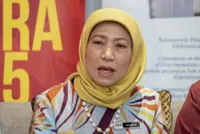PETALING JAYA: There should be a robust care industry covering both children and senior citizens, in addition to other initiatives, to encourage women’s participation in the labour market, say experts.
However, there is also rising concern that a higher rate of female participation in the labour market would contribute to the declining fertility rate, which would eventually lead to an ageing population.





